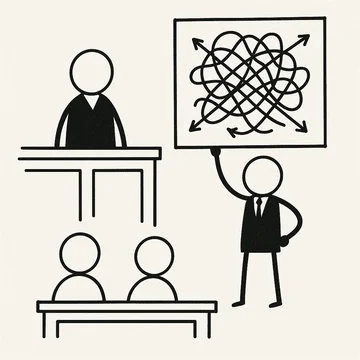
At a claim construction hearing earlier this month, Chief Judge Connolly noted some concerns with parties who offer "plain and ordinary meaning" constructions without explaining what that meaning is:
THE COURT: And going forward, Mr. Oakes, Mr. Russell, I am tempted to say the next time I get this situation [where] one side, the plaintiff[,] says, oh, plain and ordinary meaning and offers no alternative definition and all it does is criticize the defendant['s construction], which there's some actual[ly] support for, [then] I don't hold a hearing. I'm just going with the defendant. I was really tempted to do that in this case. So get the word out.
Volterra Semiconductor LLC v. Monolithic Power Systems, Inc., C.A. No. 19-2240-CFC-SRF, at 22:22-23:7 (D. Del. Nov. 12, 2021) (transcript).
Chief Judge Connolly also pointed out a "new trend" of parties—particularly plaintiffs—going for "plain meaning" constructions at the Markman stage, and then the parties having to fight about the constructions later during summary judgment:
[Plaintiff's Counsel]: Your Honor, what counsel just described, he's rearguing claim construction to the jury.
THE COURT: So it is and it isn't. Actually, the judges have been discussing this, that this has become the new thing, is that you go with plain and ordinary meaning and then you get to summary judgment and all of a sudden everybody is effectively doing claim construction, both sides. And it kind of goes to what opened up this whole hearing when I really faulted the plaintiffs for, you know, saying, oh, plain and ordinary meaning to a term which no person who is not a skilled artisan would have any idea what the plain and ordinary meaning is, and that was my reaction. Right?
And I don't know if it's a new trend. I've only been a judge for three years and, you know, didn't do many patent hearings. But I can tell you that the very experienced judges in this court have noticed this new trend.
Id. at 132:10-133:2.
The takeaway here is clear: don't offer "plain and ordinary meaning" constructions in cases before Chief Judge Connolly without saying what the plain and ordinary meaning is.
If you enjoyed this post, consider subscribing to receive free e-mail updates about new posts.






